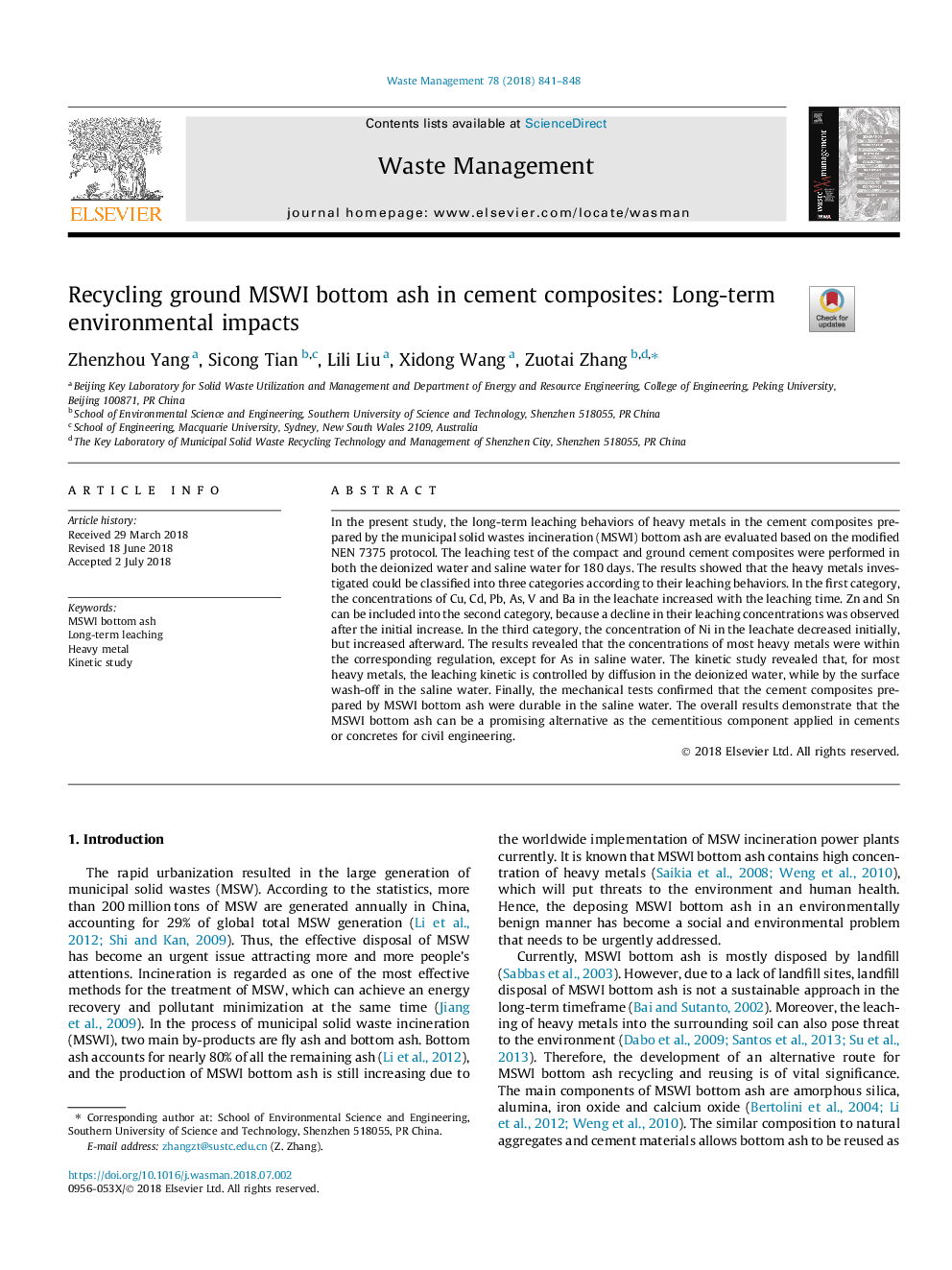| Article ID | Journal | Published Year | Pages | File Type |
|---|---|---|---|---|
| 8869412 | Waste Management | 2018 | 8 Pages |
Abstract
In the present study, the long-term leaching behaviors of heavy metals in the cement composites prepared by the municipal solid wastes incineration (MSWI) bottom ash are evaluated based on the modified NEN 7375 protocol. The leaching test of the compact and ground cement composites were performed in both the deionized water and saline water for 180â¯days. The results showed that the heavy metals investigated could be classified into three categories according to their leaching behaviors. In the first category, the concentrations of Cu, Cd, Pb, As, V and Ba in the leachate increased with the leaching time. Zn and Sn can be included into the second category, because a decline in their leaching concentrations was observed after the initial increase. In the third category, the concentration of Ni in the leachate decreased initially, but increased afterward. The results revealed that the concentrations of most heavy metals were within the corresponding regulation, except for As in saline water. The kinetic study revealed that, for most heavy metals, the leaching kinetic is controlled by diffusion in the deionized water, while by the surface wash-off in the saline water. Finally, the mechanical tests confirmed that the cement composites prepared by MSWI bottom ash were durable in the saline water. The overall results demonstrate that the MSWI bottom ash can be a promising alternative as the cementitious component applied in cements or concretes for civil engineering.
Related Topics
Physical Sciences and Engineering
Earth and Planetary Sciences
Geotechnical Engineering and Engineering Geology
Authors
Zhenzhou Yang, Sicong Tian, Lili Liu, Xidong Wang, Zuotai Zhang,
